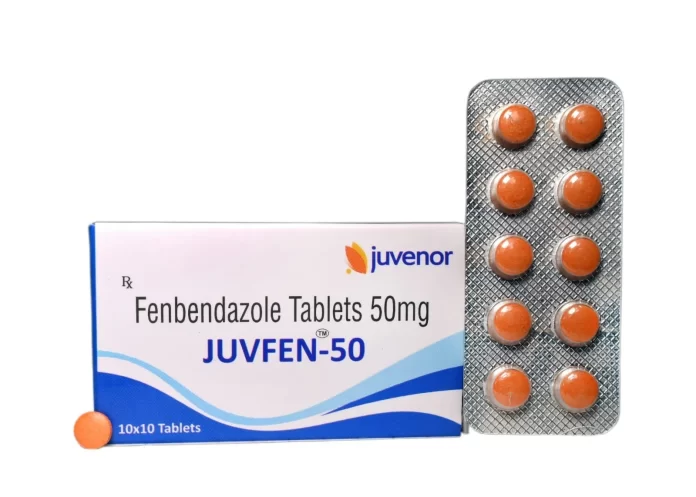Since 1974, Fenben, or Fenbendazole, has been a widely utilized drug. It belongs to a group of anti-tumor medications referred to as benzimidazoles, which have been observed to be successful in recent years. Therefore, it has been hypothesized that the pet dewormer might be potentially taken as an extra anti-cancer treatment, nearly in the same way taxol and vinca alkaloid chemotherapy therapies are used. Additionally, it appears that humans can tolerate the medicine well after ingestion, based on existing poisoning reports.
The active drug, Fenbendazole for parasites, is typically found as a white powder which is not very soluble in water. Its absorption rate in the body after ingestion is on the low side. Eating something before taking it could possibly be useful though for increasing its absorption effectiveness.
What is the way in which fenbendazole operates?
The utilization of fenbendazole can be used to combat parasites and cancer by interfering with the tubulin molecule, impeding the formation of microtubules and thus leading to the destruction of the parasites and their cells. Interestingly, the same effects seem to not be observed with other benzimidazoles and tumor cells. Three potential avenues of using fenbendazole to fight against parasites and cancer are suggested.
Scientists believe that Benzimidazole carbamates can inhibit tumors due to their interaction with tubulin, which can disrupt the cell cycle and cause cell death (apoptosis). Furthermore, it is known that this substance is capable of blocking the assembly of microtubules from tubulin in both parasites and human cancer cells.
Cancer cells display an abnormally low capacity for absorbing and utilizing glucose. The intake of glucose by tumor cells actually goes up significantly and, as a consequence, a Warburg effect is present, causing the cells to use glucose at two hundred times the regular rate. This triggers an upward motion in aerobic glycolysis. In a PET scan, higher levels of metabolic action can be located, which contain radiative glucose which is burnt very quickly, implying cancerous development or spots of infection. These can be observed.
Fenbendazole reduces the number of GLUT carriers, and hampers the performance of Hexokinase II at the same time. This particular enzyme is instrumental to the endurance of cancer cells, as it increases the glucose supplies for the tumor and causes lactic acidosis in the environment around them. Moreover, p53 activation brings down the production and usability of GLUT1 and GLUT4 transporters in the cell, also known as the “glucose gates”.
Although it is not certain how the p53 gene is being turned on again, more research is being done to determine if it is down to fenben. However, as research keeps progressing, there is more evidence that fenbendazole could make the most helpful cancer-fighting element in our bodies even stronger.
Elephants’ impressive ability to combat cancer can be attributed to the fact that they possess 20 copies of the p53 gene, while humans only have one. This large amount of genetic material helps to counteract the greater size of the elephant, with its larger amount of cells that could suffer mutations, and ultimately provides it with a superior resistance to cancer.
Fenbendazole does not prompt cancer cells to resist chemotherapy, or adapt to it. Regrettably, many other chemotherapy and biological treatments become powerless and cancerous cells can form a resistance due to P-glycoproteins which enable excretion of medicines away from them. Since fenbendazole has no bearing on P-glycoproteins, the drug is unable to be discharged from the cancer cells, thus tumors will not become resilient to this drug usually used to treat parasitic infections and it will still be efficient in eliminating cancer cells in the body. For more visit source: https://www.fenbendazole.org/

